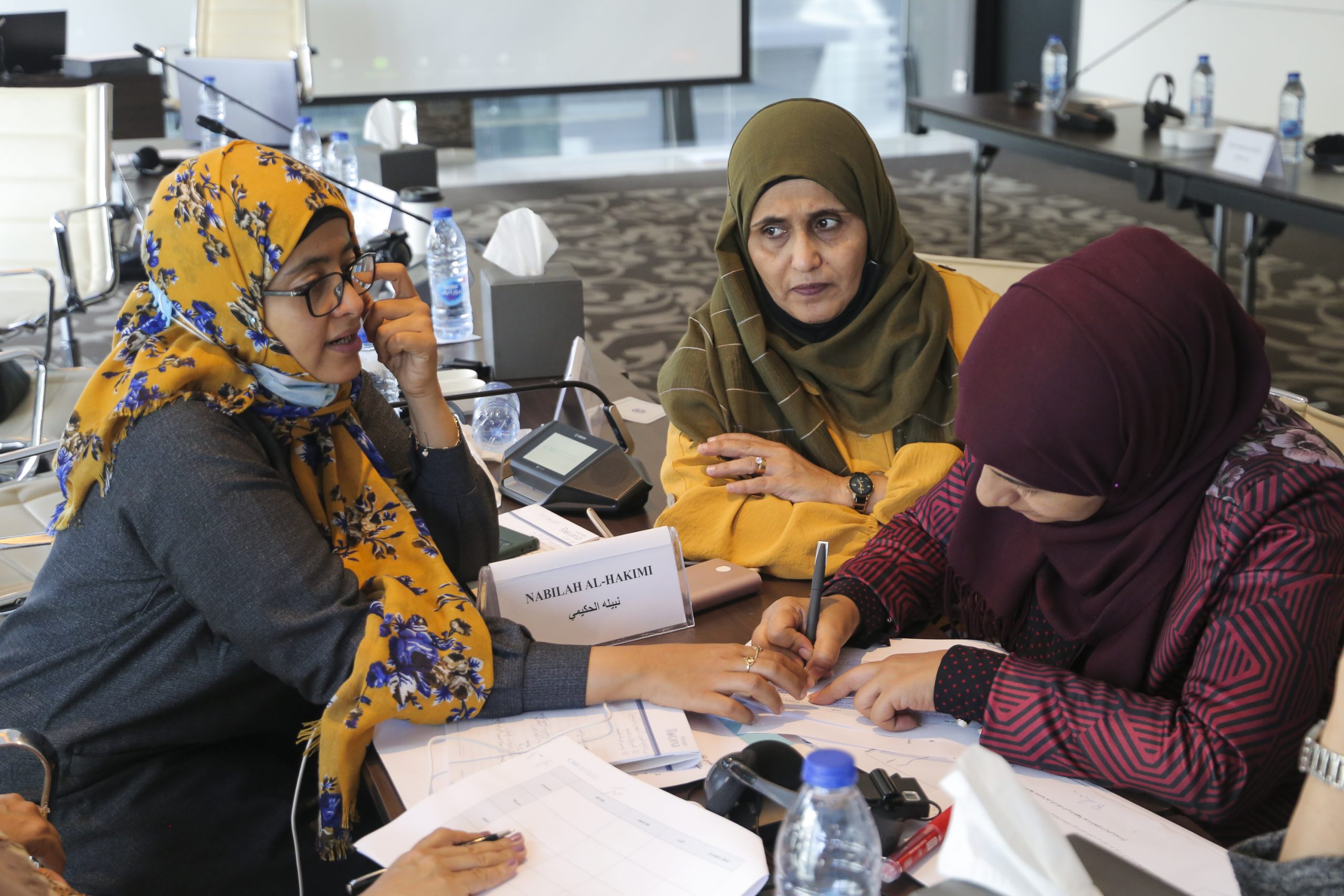Strengthening women’s participation in peacemaking
In 2021, CMI’s Women in Peacemaking team continued to support women working for peace and advocating a greater role for women in post conflict politics and society.

CMI workshop for Yemeni women in Amman Jordan, Dec 2021. Photo: CMI
In 2021, CMI’s Women in Peacemaking team continued to support women working for peace and advocating a greater role for women in post conflict politics and society.
Women with backgrounds in political parties, human rights advocacy and civil society activism play a crucial role in peace and reconciliation efforts everywhere. In many countries and conflict situations where CMI works, women politicians and civil society actors are key players in advancing peace processes. CMI’s Women in Peacemaking team has engaged with stakeholders at local, national and international levels, depending on how women and their organisations prioritise their work.
Efforts to improve a general understanding of the gendered dynamics of contemporary peace processes and decisionmaking is not only a question of equality; it is also a matter of security. In countries such as Libya, Yemen and Sudan, women’s efforts to move their country towards a peaceful and democratic future have suffered setbacks. Women activists and politicians face increased security risks, both online and on the ground. These vary from being attacked for their peace activism to being targeted due to their political work.
Supporting political dialogue
Despite an active engagement in mediating conflicts at local and community levels, and despite a clear leadership in efforts demanding peace, democratic change, and equal rights for all, women are still largely absent from formal peace processes and from official peace tables. While the peace table is not the only place where important decisions on a country’s post-conflict future are made, it is a highly symbolic space in which power relations become visible and are often reinforced. If previously marginalized groups or actors become part of negotiations on how to end conflict and take steps towards peace, they gain a new status as political players. It also becomes more difficult to exclude them later on. This is why CMI continues to work on issues of inclusion in general and on women’s participation in particular.
In 2021 the global Covid-19 pandemic closed borders and airspaces, forcing many meetings to be held online. Digital platforms offer new and versatile means for peacemaking and dialogue. CMI supported meetings involving Yemeni and Libyan politicians and civil society activists that focused on strategy, joint priorities among women actors, and creating a common vision about the future of their country. The online platforms also created links between women actors, as they enabled participants from different backgrounds and places to join in.
Platforms for young women
Important steps were taken by CMI in 2021 to understand the priorities and to establish communication platforms for young women to take part in discussions on peace, justice and social change. In countries where women’s political participation is restricted and rights are denied, it has become ever more important to maintain safe spaces for dialogue and enabling channels to voice demands for change.
In Palestine, the women’s movement has called for dialogue on critical issues related to Palestinian reconciliation process and the need to include young Palestinian women in addressing generational change. In 2021, CMI and its partner organisation Masarat supported the creation of a Young Women’s Platform with participation from West Bank and Gaza. In Afghanistan, despite harsh and violent conditions, women still participate in demonstrations, meet online and in one another’s homes, post on social media and advocate for rights to work and education. Young women face the worst risks in the current situation. They must not be left alone.
This article was published in our Annual Report 2021.
Elisa Tarnaala / CMI